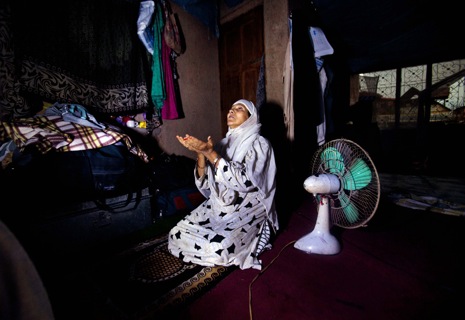
The picturesque valleys of Jammu and Kashmir have long been marred by conflict, but beneath the surface lies a deeper, invisible wound—the enforced disappearances of thousands of people. Since the insurgency began in 1989, over 8,000 individuals have been subjected to enforced disappearances, according to local human rights organizations like the Association of Parents of Disappeared Persons (APDP). These disappearances, often carried out by Indian security forces, have left families in perpetual agony, yearning for answers that never come.
The scale of enforced disappearances in Indian-occupied Jammu and Kashmir (IIOJK) is staggering. The disappearances typically occur during military operations such as Cordon and Search Operations (CASOs), where entire neighborhoods are sealed off, and house-to-house searches are conducted. Individuals, often young men, are taken into custody by Indian security forces, including the Indian Army, and are never seen again. These disappearances are not random but are part of a systematic strategy to suppress dissent and maintain control over the region.
The methods used by Indian security forces to enforce disappearances are chilling. During CASOs, individuals are picked up without any formal charges or legal proceedings, making it easier for the forces to deny any responsibility. Custodial detention is another common practice, where individuals are detained for interrogation and often go missing afterward. Reports suggest that many of these detainees are taken to secret and unofficial interrogation centers operated by the Indian Army, where they are subjected to severe torture. It is believed that many of those who disappear either die under torture or are summarily executed.
In 2011, the IIOJK State Human Rights Commission (SHRC) confirmed the existence of 2,730 unmarked mass graves across the districts of Bandipora, Baramulla, and Kupwara. These graves contained over 2,943 bodies, many of which were identified as victims of enforced disappearances. Human rights groups believe that these individuals were killed by Indian security forces and buried in mass graves to cover up extrajudicial killings. The victims were often labeled as “unidentified militants,” a convenient label used to justify their deaths.
The Indian legal system, under the protection of the Armed Forces Special Powers Act (AFSPA), grants immunity to security forces from prosecution for actions taken in the line of duty. This legal shield has created a culture of impunity, where enforced disappearances and other human rights violations are rarely investigated or prosecuted. Families of the disappeared have made countless attempts to seek justice, but their efforts have been largely unsuccessful due to the systemic protection provided to security forces.
Several cases highlight the deep-rooted impunity enjoyed by Indian security forces. The Pathribal fake encounter in 2000 is one such case where five innocent villagers were killed in a staged encounter, later claimed by the Indian Army as foreign militants responsible for the Chattisinghpora massacre. Despite overwhelming evidence proving their innocence, no one has been held accountable. Similarly, the Kunan-Poshpora incident in 1991, primarily known for mass rapes, also involved the enforced disappearance of several villagers who have never been accounted for.
The impact of these disappearances on families is profound and devastating. Families of the disappeared, often referred to as “half-widows,” face severe social and economic hardships. They live in a state of perpetual uncertainty, not knowing whether their loved ones are dead or alive. The APDP, led by Parveena Ahanger, has been at the forefront of the struggle for justice, documenting cases of enforced disappearances and advocating for accountability. Despite their efforts, the Indian government has largely ignored the plight of these families.
The issue of enforced disappearances in IIOJK has drawn international condemnation. Organizations like Amnesty International and Human Rights Watch have repeatedly urged the Indian government to investigate these cases and provide justice. The United Nations Working Group on Enforced or Involuntary Disappearances has also called on India to address these cases, but these calls have been met with indifference by the Indian government. Instead of repealing AFSPA or holding security forces accountable, the Indian government continues to deny involvement in enforced disappearances, labeling those who disappeared as “militants” or “terrorists.”
Enforced disappearances in IIOJK represent a significant human rights crisis, with the Indian Army playing a central role in these abuses. The lack of accountability and justice for the victims and their families underscores the systemic nature of these violations, perpetuating the suffering and trauma of the Kashmiri people. As the international community continues to turn a blind eye, the people of Kashmir remain trapped in a cycle of violence, repression, and fear, with little hope for justice.
